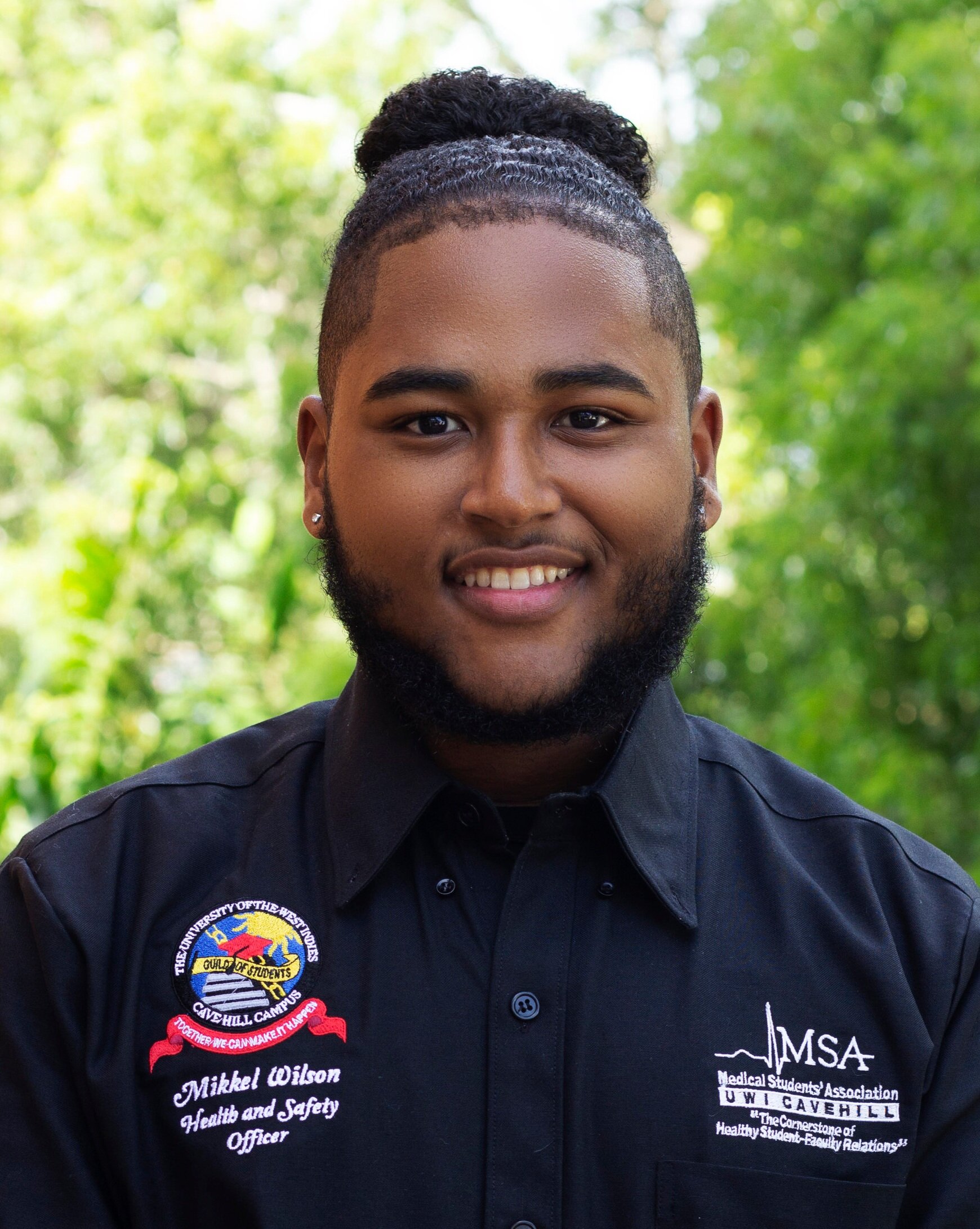UWI Toronto honour for International Trade Centre Executive Director Pamela Coke-Hamilton
April 21, 2021
For the first time, women are at the helm of the three major international trade organizations, and one is a Jamaican.
Pamela Coke-Hamilton is the Executive Director of the International Trade Centre (ITC) which is the development agency of the World Trade Organization (WTO) and the United Nations dedicated to supporting the competitiveness of micro, small and medium-sized enterprises (MSMEs).
Based in Geneva, she is the ITC’s eighth Executive Director since the organization was established in 1964 and the second Jamaican to hold the position after Patricia Francis who served from 2006 to 2013.
“As Jamaican and Caribbean women, we tend not to see the symbolism of women in leadership as much because we grew up in matriarchal societies,” said Coke-Hamilton who assumed the new role last October. “It wasn’t until I left the Caribbean that I began to see it’s not that normal and that Jamaica is an outlier in terms of gender balance. While we still have our issues in the boardroom, for the most part we don’t have the imbalance that tends to exist elsewhere.
“This is particularly symbolic at a time when trade will be critical to the global recovery from the COVID pandemic and we will need innovative interventions to ensure growth. We need to invest in the multilateral trading system and in the United Nations.”
Nigerian-American economist Ngozi Okonjo-Iweala is the WTO Director General and former Belgian politician Isabelle Durant is the Acting Secretary-General of the United Nations Conference on Trade & Development (UNCTAD).
Coke-Hamilton welcomes the opportunity to work with her female colleagues in the high-pressure trade organizations.
“For me, women are more practical,” she said. “Our tendency is to identify the problem, try to find out how we can resolve it and then seek out the tools needed to solve the problem. My expectation is that we will work more closely to try to create a new environment that will look at the developmental aspects of international trade and how we can actually help those businesses on the ground thrive in a post-COVID environment.”
Coke-Hamilton is leading the organization at a pivotal moment given the catastrophic impact that the COVID-19 pandemic has unleashed on the global trading system, particularly on MSMEs in developing countries, with ITC required to play a vital role in assisting the building of stronger and more resilient businesses and countries.
“I am a person who is more practical than theoretical,” she said. “While I appreciate the underpinnings of theory, I am a person who loves to be hands-on and get in the field. For me, ITC is the practical point of development dynamics, which translates the trade rules and regulations in the international arena into concrete trade opportunities. Through capacity building, technical assistance and empowerment, ITC makes trade work for people on the ground. The position is tailor-made for what I want to do and see in the world.”
Prior to joining ITC, Coke-Hamilton spent two years with UNCTAD as Director for International Trade & Commodities.
She was responsible for providing member states with direction and analysis on multilateral trading system issues from a development perspective.
Coke-Hamilton was also the Caribbean Export Development Agency (CEDA) Executive Director for nearly eight years up until August 2018.
Establishing the Women Empowered Through Export platform to address inequities women-owned companies experience in accessing markets, initiating the Caribbean Exporters Colloquium that brought together industry leaders to discuss key issues relating to exports from the Caribbean to international markets and assisting firms through a grants process to retrofit their factories or meet required global standards are some of the highlights of her time with Caribbean Export.
“We were also able to create platforms for creative industries,” she added. “Most of the exports tended to be focused on goods, but we are really, for the most part, services-based economies. The fastest growing services are the creative industries, so we set up platforms for design, fashion and music artisans and the culinary arts.”
While we may see the trade leader she is today, Coke-Hamilton’s journey to trade began in her home country Jamaica.
The middle of five siblings raised in Mandeville comes from a socially conscious and political family.
At the tender age of 10, she first learned about the United Nations.
“I found it fascinating as a child to read about these diplomats who represented their country in this formidable place,” Coke-Hamilton recalled.
In Second Form, she was assigned a project on Egypt at around the same time that Egyptian President Anwar Sadat and Israeli Prime Minister Menahcem Begin signed the Camp David Accords in 1978 in the presence of then American President Jimmy Carter.
“For whatever reason, that signing stuck with me and I read as much as I could about what Carter had done to pull together this historic agreement,” said Coke-Hamilton. “The process was fascinating.”
She completed an International Relations degree at the University of the West Indies (UWI) before joining the Foreign Service that provided her a front row seat to some of the most pivotal moments in modern trade history.
Her first posting was to Geneva as Consul and Counselor at the Permanent Mission of Jamaica.
Coke-Hamilton worked on the Uruguay Round negotiations that created the WTO. Thereafter, she served in Washington during the North American Free Trade Agreement (NAFTA) and Free Trade of the Americas (FTAA) negotiations.
After leaving the Foreign Service, she continued to sharpen her skills by completing a law degree at Georgetown University and doing a six-month stint at a law firm in Washington.
Coke-Hamilton joined the Organization of American States (OAS) where she moved through the ranks in the trade unit to become Director in the Department of Trade, Tourism & Competitiveness.
Recognizing the importance of building the trade negotiating capacity in the Caribbean region, she undertook strategic secondments during her time at the OAS.
She worked at the Caribbean Regional Negotiating Machinery as an FTAA Co-ordinator and at the UWI Cave Hill Campus in Barbados to help design and implement the Masters in International Trade Policy program that’s in its 16th year.
“I wanted to design a program that I wished I could have had at the start of my career in trade,” Coke-Hamilton pointed out.
She also spent two years at the Inter-American Development Bank as Regional Hub Co-ordinator for the Caribbean in the Integration & Trade Department before going to the Barbados-based Caribbean Export.
WTO Director General Ngozi Okonjo-Iweala (r) presented a copy of the recently published ‘One Love: Over 100 Years of Jamaicans Contributing to Nigeria’s Development’ following a meeting on April 1 (Photo contributed)
Coke-Hamilton, whose son Matthew Hamilton is a second-year Liberal Arts student at Dalhousie University in Nova Scotia, will be recognized for her outstanding achievements with a Vice-Chancellor’s Award at the 12th annual UWI Toronto gala fundraiser that takes place virtually on May 22.
The trade and development policy expert is among two past students that will be honoured at the event that has provided 600 scholarships for UWI students.
“I owe such a great debt to UWI because it, in a sense, formed who I am,” Coke-Hamilton said. “Much of my world view and fundamental beliefs in terms of development, equity, racial injustice are shaped in the crucible of UWI.”
Other Vice Chancellor’s Award winners are Kevin Fenton who graduated from UWI in 1990 and is a public health professional in England and Wendy Beckles who is the President & Chief Executive Officer of Shepherd Village that is Toronto’s largest service retirement community.
Businessman Denham Jolly will receive the Raymond Chang Memorial Award; Graca Machel, the widow of South African President Nelson Mandela, and British model Naomi Campbell will be presented Luminary Awards and the Centre for Addiction & Mental Health will be the recipient of the Chancellor’s Award.
Registration to access and watch the Awards celebration is free. To register for the event, log on to: http://www.uwitorontogala.org/register.







